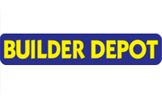News & Events / ...
How the Entire Automotive Industry Can Work Towards Zero Waste
According to the World Economic Forum, the number of cars on the road will reach two billion by the year 2040. The doubling of cars means the entire automotive industry needs to work hard to avoid doubling the amount of automotive waste produced along with them. The automotive industry needs to go beyond recycling and look towards zero-waste initiatives.
Managing upstream and downstream automotive waste is already a key priority for Original Equipment Manufacturers (OEMs). Subaru operates the U.S.’s first zero-landfill factory; BMW is the first OEM to use sustainable bio-waste paint; Skoda also promises to send zero waste to the landfill.
Here are some tactics any business in the automotive industry can use to work towards zero waste:
Participate in a Closed-Loop Car Recycling Ecosystem
According to the American Recyclers Association, retired vehicles are more easily recycled than almost any other product, including paper and aluminium tins. There are more opportunities for recycling with a car than with almost any other product on the market, which is good news given the number projected to be on the road in less than 20 years’ time.
Closed-loop recycling is a form of recycling that protects a material’s integrity so that it can become a new product. The closed-loop ecosystem therefore, can help all players in the automotive industry reclaim as many parts as possible and then recycle what’s left.
Tyres are a great entry-point into closed-loop systems. As the number of cars grows, the number of tyres must grow with them. However, tyres contribute to huge environmental waste management problems, even when disposed of carefully.
Thankfully, tyres have a long list of new applications once spent in their current form. When you use a tyre baler, you can work with partners who will reuse those tyres and create new products. Those opportunities already exist: Michelin North America has participated in a closed-loop process for over 10 years.
Use Tech for Effective Inventory and Packaging Management
More cars requires more upstream and downstream orders for production, distribution, maintenance, and end-of-life activities. Most manufacturers worry about the vehicle components themselves. However, all of this inventory can also lead to a huge increase in packaging waste – so much, that it is now estimated the volume of plastics per new vehicle will increase up to 17% by 2030 unless manufacturers begin reviewing potential reductions now.
While the automotive industry already looks towards the Just In Time (JIT) method pioneered by Toyota to streamline, there are ways to better support this practice. Cloud-based tech solutions (like order management solutions) can help to bake in supply chain resilience and drive on-time in-full deliveries.
When you’re ordering what you need, you reduce the amount of packaging required and make the packaging you do use easier to manage. From here, you can work with waste management partners like LSM to simplify recycling management with tools like baler machines.
Reducing the environmental impact of automotive waste is everyone’s responsibility. You can accomplish zero-waste and more with the help of the right waste management partners. At LSM, we can work with an automotive company to simplify their recycling waste management with the help of balers. Get in touch with LSM’s waste management experts to learn how a recycling baler could transform your business.
Could the right waste baler pay for itself?
Selecting the right baler for your business can
reduce waste collection fees and actually earn
you money, by turning that waste into a saleable
commodity, baled and ready for collection.
Why a baler is key to efficient waste removal
Using a baler significantly reduces the labour involved
in flattening boxes manually and improves waste
management by compressing recyclable waste,
enhancing the efficiency of your business.
Our Customers
As the UK’s leading waste baler specialist, LSM supplies shops, garden centres, hotels,
hardware stores, farm shops etc. with waste solutions for various recyclable materials
including cardboard, paper and plastics etc.









